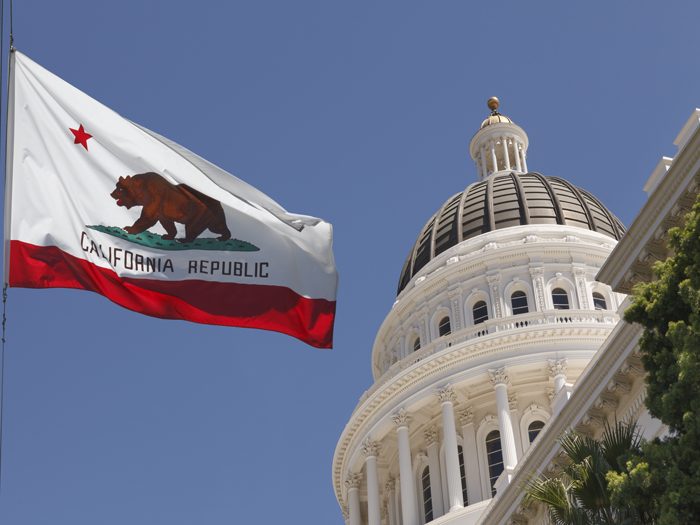Unintended Consequences in California’s New Privacy Law Loom for Workers’ Comp

It’s a new year, and California is already leading the charge with new regulations that will have an impact on workers’ comp.
Only this piece of legislation wasn’t even intended to affect the industry as a whole; it was meant to take on tech giants, like Facebook, Amazon and Google.
The California Consumer Privacy Act (CCPA), which went into effect January 1, 2020, aims to protect consumer data and privacy. The law allows consumers to see the data businesses have collected on them and to which corporations they may have sold it to or bought it from.
It also gives California residents the right to delete personal information that companies have collected and to see what personal data their employers have collected — and potentially sold.
The bill’s main target is obviously tech and social media companies, like Facebook, Twitter and Instagram, which trade heavily in the sales of personal data. Some of the language of the bill, however, could cause it to ripple into the workers’ compensation and insurance industries.
On December 6, the Association of Claims Professionals (ACP) penned a letter to the California Department of Justice, suggesting it make changes to some of the language in the CCPA.
Specifically, ACP called for language that will help the law minimize consumer confusion and avoid conflict with other laws.
The Letter at a Glance
The ACP took issue with two different sections of the law.
The first section focused on the law’s potential conflict with pre-existing laws, including the California Insurance Code, Labor Code and both federal and state health laws.
While section 1798.196 of the bill attempts to address this, the ACP requested that the state also amend language in section 999.313(d)(6)(a).
It proposed revising a section of the law to make it clear that a business does not have to delete or refuse to share a consumer’s data if deleting that data would result in a violation of pre-existing federal and state laws.
“ACP companies respond every day to individuals and businesses [that] suffer a loss such as a workplace injury, property or casualty damage or liability, and as a result are involved in the sharing of important information necessary to facilitate effective and efficient claims management,”said Tom Veale, president of TRISTAR Insurance Group, in a press release.
“It is therefore important that the CCPA be implemented in a way that neither creates additional barriers for adjusters nor double-regulates an industry that is already subject to an extensive patchwork of laws and regulations meant to protect consumer privacy.”
The second section that the ACP took aim at concerned the law’s lack of clarity regarding “businesses” and “service providers.”
In the letter, ACP said, “[T]o ensure the most expedient claims management and administration, while avoiding consumer confusion and consternation, there are adjustments that should be made to the proposed regulation’s guidance on Service Providers.”
Currently, the ACP is concerned that the bill’s current language regarding service providers will prevent claimants and carriers from sharing information that could help manage and resolve claims.
It is calling for the law to adjust its current language so that claimants and carriers can share appropriate information freely.
Regulation Woes
In the letter, the ACP acknowledged the need to protect consumer privacy but noted the law’s potential to ripple into workers’ compensation and the insurance industry at large could cause delays in processes such as claims administration: “While ACP members are strong proponents of individual privacy rights, we remain concerned that the unintended application of the CCPA and proposed regulations will create confusion among California consumers and could result in conflicting regulatory standards for our members and the broader California business community,” Veale said.
This is not the first time in recent memory that new regulations in the state have caused ire over their unintended consequences either.
The state’s Assembly Bill 5, which uses an ABC test to determine if gig workers are independent contractors or employees, has attracted lawsuits from freelance journalists and app-based companies, such as Uber and Postmates, that say the law is unfair or unconstitutional.
If the law stands, workers who were previously considered independent contractors could become newly eligible for workers’ compensation benefits.
The law is set to go into effect on July 1, 2020. &








